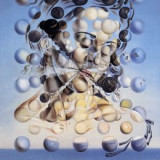Poetry in Translation
-
Narph
9 years agoI've spent the last four years studying this, and I think it might be an interesting thing for discussion here, especially considering how many different languages and countries and cultures are represented among us.
So. Let's talk about poetry in translation.
Here's a few questions to get us started. (Feel free to add your own).
Do you read foreign poetry?
Do you read it in the original, or do you read it in translation?
Do you read both and compare?
How do you perceive of a translated text?
Is it accurate, or is it lacking?
What are your thoughts! Tell me, tell me, tell me. -
silvershoes
9 years agoI've read several book compilations of translated Indian poems, and can to an extent read poetry in Spanish, though I think the poetic touch is lost on me in foreign languages because I'm not fluent. What a treat it would be to be fluent.
-
nouriguess
9 years agoModern Arabic poetry is what touches me the most.
I used to read Russian poetry, translated into English or Arabic, all the time. But now I'm starting to read it in Russian and translate it myself. -
Ben Pickard
9 years agoI agree with what Jane alluded to; I think without a fluent understanding of a language, then some of the complexities can be lost while reading. Fascinating trying though and a great topic to raise.
All the best -
Bob Shank
9 years agoI honestly think many poems lose their zest when translated to another language, for instance if you translated a rhyming poem from English to say Spanish, it would no longer rhyme.......you get the gist, and sometimes three words mean one, so you could have a syllable count in one language and it would change during translation, I do wish I could read other works in the language it was written, it would be interesting to compare, styles, formatting, etc.
-
Ben Pickard
9 years agoExactly Bob. The translation of a poem is almost a waste of time often. The idea can still be conveyed but not the words. Alliteration, phrases, metaphors, figurative language in general is often lost. Words are the very essence of any poem and if they are read in a pattern or order they were not written in, the simple poetry is lost. Of course, this can apply to a greater or lesser degree.
-
-
GB
9 years agoSpeaking about myself, poetry in translation is a real art and a very enriching experience as well.
We enjoy the Persian and most of the Japanese poetry after translating into english. It's a gate to the different cultures.
I practiced translation as a hobby few years ago.The most interesting part is sharing different thoughts with native speakers of the other language, for both parts will try to grasp what lies beneath the lines to come up with a good text devoid of modifications.
A brainstorming process indeed :) -
Em
9 years agoI think that when translating a poem from it's original language it loses some of it's meanings or what it as some of the translates do so poorly
-
Everlasting
9 years agoI think the poems that I read the most are either from this site or other site. I have read a few poems from Pablo Neruda mainly the English Translation. I have like 3 books by him waiting on my shelf for me to read them . . . those are in Spanish.
Do you read foreign poetry?
^ i don't know. lol I have the tendency of reading... i guess the English translation or Spanish versions, but i don't think i can consider any of those foreign to me.
i have read a poem from Pablo Neruda with the English translation, but also the Spanish version, I noticed that the English translation lacks feeling. I also believe that if the translator does not understand the message of a poem, then the message gets lost. Translating is a tough job. -
Saerelune
9 years agoI read some German poetry sometimes, but since I'm not so fluent at it, I try to find books with an English translation next to it. I honestly enjoy both, I love to compare, and having the English translation makes me understand the poem better, though still not to the extent that I can enjoy the German poem fully. I don't mind that the translations are not literal, because in fact I think it makes the translated poem better (since it adheres to its own rhyme scheme and flow), though indeed it is a pity that lots of wordplay gets lost this way...
-
Larry Chamberlin
9 years agoI grew up reading poems from many languages without ever considering the fact they were not original. It was not until high school that I read anything by my own translation: Latin, French, Spanish & later Russian in college. I loved Ovid's Metamorphoses and Baudelaire's Don Juan in Hell. On the other hand Pushkin left me cold. However, these were classes only and I have lost all these skills. I can torture my way through French at least, Latin somewhat better. Rosaura got me to read Ruben Dario's Azul, her Nicaraguan national poet. I do like him.
I think the quality of a translation depends on the translator. The Rubaiyat translated by Fitzgerald is so magical it is hard to believe the original is better, but I'm sure it is. Translations of other works seem to be merely conversion of the languages.
There are numerous poems on this site in the author's native tongue with translations below. These translations are wonderful, especially since the author knows exactly the sense of the original. -
Everlasting
8 years agoSpeaking of translation...
Does anyone who speak Arabic know how "the only begotten son of God" is written? I mean in what sense is the word "begotten" spoken as? as "Unique" or "only"? -
nouriguess
8 years agoOnly. The only son of god.
-
Everlasting
8 years agoThanks Noura.
by any chance do you know how closely related are Arabic and Greek?
Actually, never mind that. Does anyone know what language was the bible written on?









